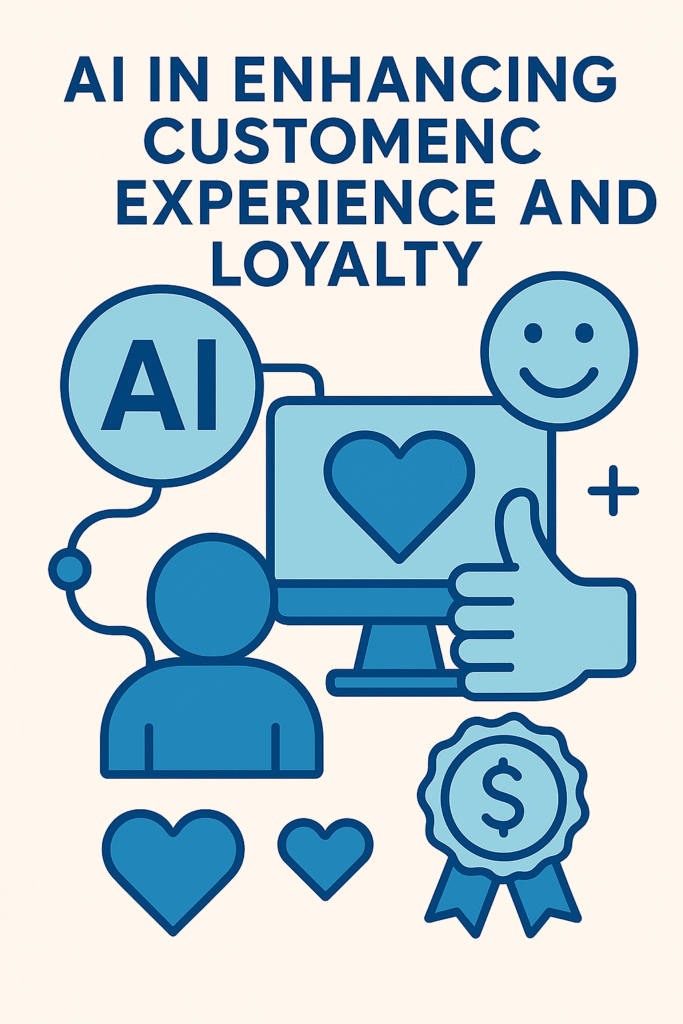
In the era of digital transformation and intense competition, AI has become one of the most strategic tools that decision-makers rely on to enhance customer experience and loyalty. AI serves as the driving force that enables companies to understand customer behavior and provide personalized services that exceed traditional expectations, fostering deep and sustainable relationships while securing a competitive advantage in the market.
AI applications in customer experience are comprehensive and multifaceted; they go beyond automating routine tasks to include precise data analysis and personalized recommendations tailored to each customer’s needs. By leveraging technologies such as machine learning and natural language processing, companies can analyze customer behavior in real time, allowing them to swiftly adjust strategies in response to market changes and consumer demands. This approach not only enhances internal operational efficiency but also improves engagement and conversion rates, positively impacting revenue and market value.
Interactive chatbots and virtual assistants are among the most prominent AI tools reshaping customer service. These technologies provide continuous support 24/7, ensuring quick and personalized responses to inquiries without requiring immediate human intervention. This capability enables companies to reduce operational costs while improving customer experience through instant and user-friendly solutions. Additionally, predictive analytics allows businesses to anticipate future customer trends, helping them adopt precisely targeted marketing strategies that increase retention rates and strengthen business relationships.
Automated recommendation systems offer another example of how companies can leverage AI to personalize services. By analyzing purchase records and browsing behavior, these systems can suggest products or services that align with individual customer preferences, increasing opportunities for cross-selling and up-selling. Furthermore, AI enables businesses to monitor customer satisfaction levels regularly and adjust their offerings based on feedback, demonstrating a commitment to delivering continuous value to consumers.
However, implementing AI in customer experience comes with challenges, including ethical concerns related to data protection and privacy, as well as the need for advanced technical infrastructure and specialized analytical capabilities. Companies must invest in workforce training and foster a culture of innovation to ensure seamless integration between intelligent systems and traditional operations. Strategic partnerships with AI solution providers are also essential to keep applications updated and aligned with global advancements.
Moreover, leveraging AI in customer experience is a strategic step toward enhancing competitive advantage and increasing return on investment (ROI). Companies that effectively deploy these technologies witness higher customer satisfaction, which translates into lasting loyalty and brand advocacy. Smart data analysis also enables businesses to make scientifically informed decisions, reducing risks and supporting sustainable growth objectives.
Conclusion
AI demonstrates how companies can transform customer experience into a valuable journey built on continuous interaction and deep behavioral analysis. By integrating AI technologies into customer service strategies, businesses can not only improve operational efficiency but also establish emotional and practical connections with customers, leading to long-term loyalty and sustainable growth in a highly competitive business environment. Investing in AI is not merely a technological choice but a strategic decision that ensures a bright future for companies seeking excellence and innovation.
